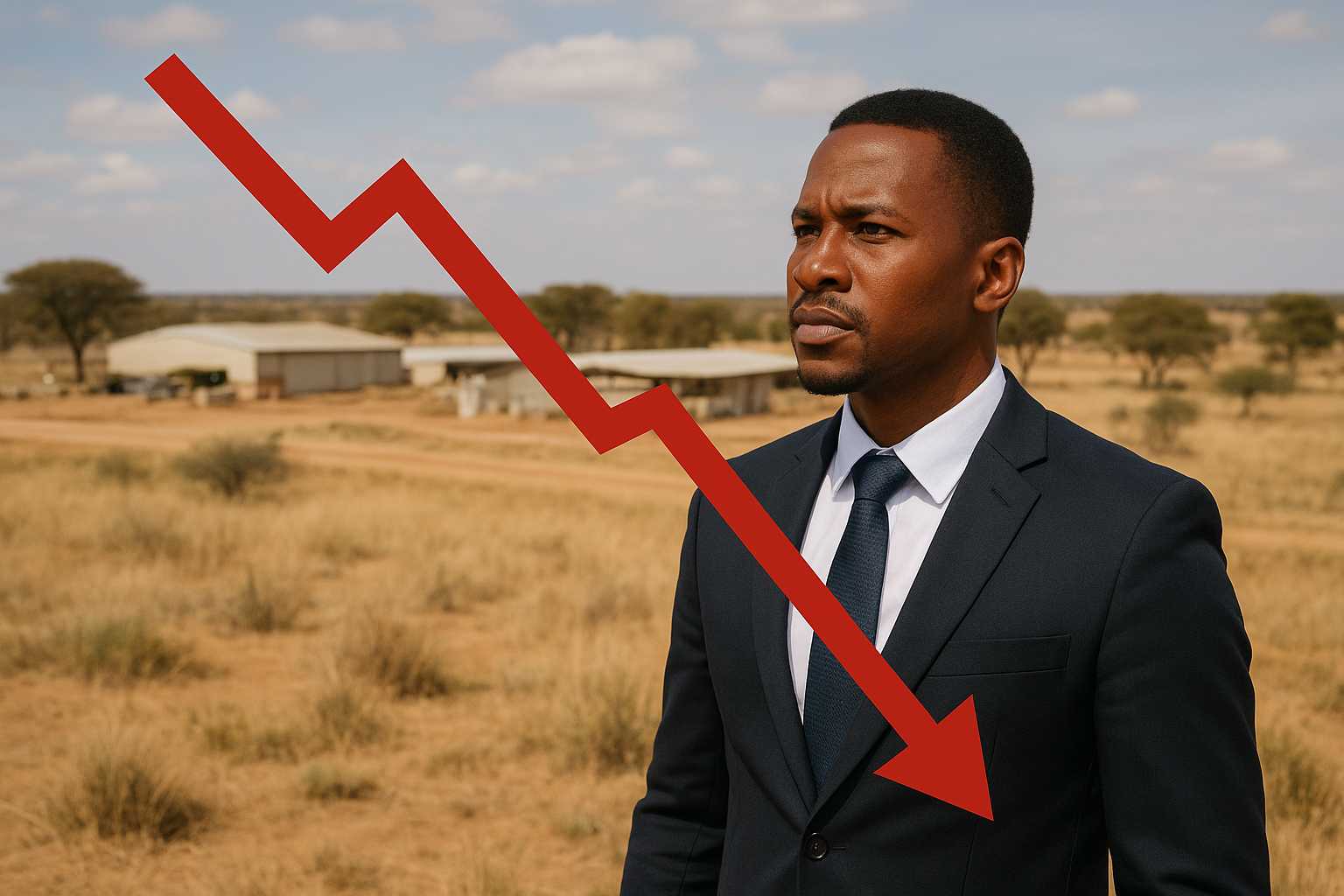Botswana's Business Confidence is Falling. Here's Your Unfair Advantage.

In an economy of high interest rates and operational disruptions, the businesses that thrive won't be the luckiest; they'll be the most structured.

If you feel like running a business in Botswana is getting tougher, you're not imagining it. The latest Business Confidence Index confirms it.
According to a Weekend Post report, confidence among local businesses has declined. The reasons are all too familiar: high interest rates, persistent water and electricity disruptions, and weak demand. These aren't minor inconveniences; they are structural challenges that punish businesses built on shaky foundations.
In this climate, a business that runs on the owner's daily mood and energy isn't just inefficient; it's vulnerable.
The External Squeeze Meets Internal Chaos
The report highlights a critical truth: the external environment is volatile. You can't control BURS, water cuts, or global interest rates.
But you can control your internal environment.
Many local SMEs are facing this external squeeze with total internal chaos. When the owner is overwhelmed, strategic planning for high interest rates doesn't happen. When a water cut halts production, there's no documented contingency plan because "the boss" isn't there to give orders.
This reactive mode is a luxury you can no longer afford. The businesses that will navigate this downturn are the ones that have already built systems to withstand the CEO's bad day, a key person's absence, or a market shock.
Structure: Your Shield Against Economic Uncertainty
The resilience of big corporations isn't magic. It's architecture.
They have systems that ensure:
- Financial decisions are based on data and policy, not panic when rates rise.
- Operational workflows continue even when the manager is dealing with a disruption.
- Leadership is distributed, so the entire company doesn't stall if the founder is focused on a crisis.
Your business needs this same architectural strength. The goal is to build a company that is proactive, not reactive; a company that can endure external pressures because its internal workings are predictable and sound.
From Vulnerable to Resilient: The Botswana Legacy Blueprint
Transforming your business from a personal venture into an enduring enterprise is your ultimate competitive advantage. It requires building three layers of structure:
- Operational Structure: Documented processes for everything. What is the backup plan during a power outage? How is client communication handled when services are delayed? This turns chaos into a manageable procedure.
- Financial Structure: A clear cash flow management plan that accounts for volatile interest rates and seasonal dips. This isn't just about tracking money; it's about having a strategic playbook for survival and growth in a tight market.
- Leadership & Ownership Structure: A team empowered to make decisions and a clear succession plan. When you're not in the room, who handles the regulator? Who approves the critical purchase? A business that can't answer this is one unexpected event away from a full stop.
Your First Step in a Low-Confidence Economy
The Weekend Post report isn't just news; it's a warning and a call to action. The time to build your business's structure was yesterday. The next best time is now.
Start here: In the next week, document the steps for handling your most frequent operational crisis; be it a machine breakdown, a key employee's sudden absence, or a supply delay. This simple act moves your business from reactive to resilient.
A downturn separates the fragile from the fortified. Don't let a lack of structure be the reason your legacy falters.
In an economy of declining confidence, your business doesn't need to be a victim. In Financial Clarity for Legacy Builders, I provide the framework for Botswana entrepreneurs to build resilient, system-driven businesses that can withstand economic shocks and thrive for generations.
[Click Here to Get the Blueprint for a Shock-Proof Business]